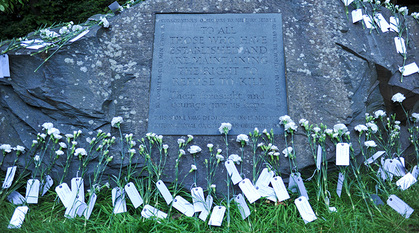Breaking down barriers through online youth work
Lee Lester examines the different ways online youth work has broken down barriers to participation, and how new ones can be mitigated.

“Have you heard about all the schools closing? I feel really weird and just can't believe it's happening. I don't know what's gonna happen about my exams and wondering if this means I'm not going to able to see any of my friends? Sorry for all the Q's but I am freaking out BIG time."
I received this text within 15 minutes of the announcement that schools would be closing due to Covid-19. The text was from a young person who was involved in the youth group I run as part of my role as Quaker Youth Development Worker.
This was not the only message I received and many more young Quakers expressed similar feelings of anxiety, sadness and disbelief.
Youth work provision
As schools closed, so too did youth work provision. Many other youth work services weren't able to offer online work. Some did not feel they had the resources to confidently deliver these sessions, particularly with concerns around safeguarding and a need to furlough staff. It left many young people in need of a safe youth space to talk and be with peers.
In the Children and Young People's team we knew we needed to try and support young Quakers as much as we could. Like many people we decided to trial using Zoom as an online platform for hosting group sessions. Lots of planning went into how to make it accessible, engaging and, most importantly, safe.
Moving online
The existing meet ups of Young Friends Friday in Bristol and the Sheffield Young Friends Action Network switched easily to Zoom. The sessions are a mix of games, discussions and a check-in on how they are feeling. Many of the young people expressed feelings of worry, especially those aged 13 or over who were preparing for exams. Soon, Kirsty Philbrick, the other Youth Development worker, and I opened up more sessions including a lunchtime drop-in.
Online sessions have also provided a unique opportunity to be far more inclusive. Despite our best efforts there are barriers to face-to-face youth work that can't always be overcome.
Overcoming geography
Our pilot youth work projects support young people in Sheffield and Yorkshire, and in the west region around Bath and Bristol. There have been numerous attempts to bring the groups together and now, thanks to online meetings, we have. Young people expressed how much they've enjoyed spending time with other young Quakers from different areas.
Simpler residentials
It struck us how beneficial it was to be able to use an online platform for a larger event. We've successfully run two online weekend virtual 'residentials', one for children aged 6–12 and one for teenagers aged 12–16. What would be considered an ambitious, expensive and time-consuming piece of work became simplified and, although it was fatiguing in a different way, it was so worthwhile. Young people were able to attend who may not have been able to do so face-to-face due to disability, finances or a myriad of other barriers.
Adapting for particular needs
Online meet-ups offer different benefits and challenges for those with particular needs. Some young people with physical disabilities can't always find, or afford, to pay for a carer or specialist vehicle to accompany them to a face-to-face group. These participants benefit from online sessions and have expressed a greater sense of independence at being able to attend more equally.
Seeing everyone on a small screen in front of you means more people are visible to you at once. You can see people's body language and facial expressions which, for some, makes people easier to read. Others find this harder and can feel uncomfortable. Being able to participate with the camera turned off can enable some to participate more fully.
Removing the financial cost
We were very aware that despite the accessibility of online work, there would still be some young people who wouldn't be able to come. Some didn't have access to suitable electronic equipment, others had no access to Wi-Fi or adequate phone data. We discussed financial support with Quaker meetings and some were able to purchase a laptop, tablet or data so a young person could be included. It's helped people keep in contact with their peers, their Quaker meeting and also access school work.
Continuous learning
The learning from these pilot projects has fed into national work, with three different weekly youth groups for young Quakers. The teenagers have come from across Britain; some had met before, others knew no one initially.
Participants have said:
"This group has helped me to connect to young people during lockdown by interesting conversation and games and I have made good friends."
"It is important for me to connect with people my age at the minute, because I'm not going to school so therefore not seeing my friends. The sessions have helped me understand more about other young Quakers. Some views were challenging but that is a good way of widening your understanding!"
It's been so positive to be able to be there for these young people. They've had a safe space to explore their feelings and socialise with their peers. So many of them have said how important it has been for them to have a guaranteed weekly check-in to explore their feelings and share their difficulties without judgment.
There have been some real benefits – as well as new challenges – from adapting to working online. We hope to continue some online work with young people even when we can meet again face-to-face. This will allow young Quakers to meet with others more regularly, with fewer worries about transport and time costs, to build relationships and community.
The Young People's Online Programme 2020 - Building Connections, 3–7 August, continues this work. Young Quakers aged 11–17 will have a space to build community and connection, explore personal faith and current issues and develop their spirituality.


